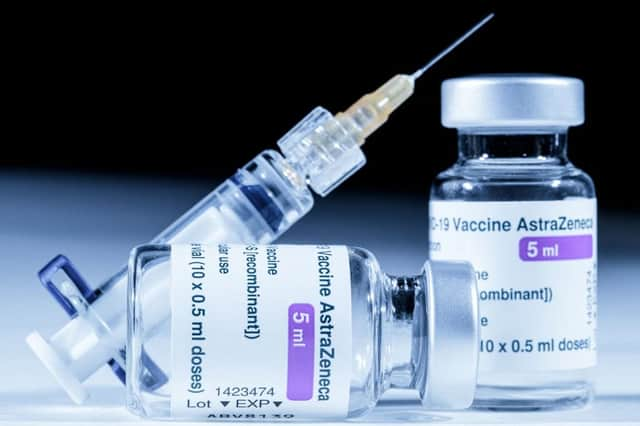WHO is reviewing the health risks of Oxford Covid vaccine - the UK maintains it's safe


The World Health Organisation (WHO) is reviewing the safety of the Oxford/AstraZeneca Covid vaccine after some countries have halted its use due to concerns over blood clots.
WHO vaccine experts are meeting today (Tues 16 March) to review the jab, after several European countries have halted the rollout of the vaccination due to reports of blood clots after it was administered.
Advertisement
Hide AdAdvertisement
Hide AdHowever, the numbers are below those that would be expected in the general population, and both the WHO and the UK’s Medicines and Healthcare products Regulatory Agency (MHRA) have said the jab is safe to use.
‘Many thousands of people’ develop blood clots every year
The Netherlands, the Republic of Ireland, Germany, France, Italy and Spain are among some of the countries that have stopped administering the jab.
However, Joao Vale de Almeida, EU ambassador to the UK, said it was not an EU decision to suspend the rollout of the Oxford/AstraZeneca coronavirus vaccine, but the decision of individual governments.
He told BBC Radio 4’s Today: “It is not an EU decision, these are decisions taken by individual governments.
Advertisement
Hide AdAdvertisement
Hide Ad“Like the British Government, all our governments are worried, concerned and focused on the safety of citizens, when doubts appear for whatever reason I think the principle of caution prevails.”
The European Medicines Agency (EMA) has also reiterated that the number of vaccinated people with blood clots is no higher than the general population.
The EMA said “many thousands of people” develop blood clots every year in the EU and “the number of thromboembolic events overall in vaccinated people seems not to be higher than that seen in the general population”.
The EMA’s safety committee is reviewing the data and working closely with the company, experts in blood disorders and a number of authorities, including the MHRA.
Advertisement
Hide AdAdvertisement
Hide AdThe EMA committee will also further review the information on Tuesday ahead of a meeting on Thursday (18 March) in order to consider any further action that may be needed.
‘It is safe, people should get the vaccine’
A number of UK leaders have said that the Oxford/AstraZeneca vaccine is safe to use and have urged people to continue to attend vaccination appointments and receive the jab.
Prime Minister Boris Johnson said the MRHA was “one of toughest and most experienced regulators in the world”.
“They see no reason at all to discontinue the vaccination programme… for either of the vaccines that we’re currently using,” he added.
Advertisement
Hide AdAdvertisement
Hide AdScotland’s First Minister Nicola Sturgeon also said at a coronavirus briefing in Edinburgh on Monday (15 March) that there was “no current evidence” linking the inoculation to blood clots.
Ms Sturgeon added: “As soon as I get that invitation to go to be vaccinated, I will be there without hesitation, regardless of which of the vaccines I have been offered, and I would urge anybody who is getting the invitation to come and be vaccinated to get vaccinated.”
Foreign Secretary Dominic Raab also urged people to get the Oxford/AstraZeneca jab as the MHRA, EMA and WHO have said it is safe for people to continue to receive it.
Mr Raab told BBC Breakfast: “Different countries have different approaches but I can tell you crystal clear that the UK regulator, the European EU regulator and the WHO all say that the AstraZeneca vaccine is safe and people should continue to take it.”
Advertisement
Hide AdAdvertisement
Hide AdHe added: “It is safe, people should get the vaccine and I think it has been very clear, both from the MHRA, the UK regulator, that the risks of taking the vaccine are no more than, in terms of for example blood clots, than the population at large.
“There is no extra risk on the evidence that we’ve seen, which is why they have authorised the vaccine and haven’t taken any further action.”